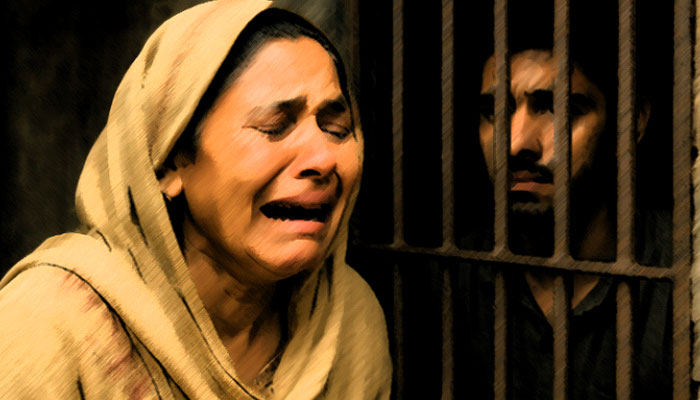A tale of States under genocide: Jammu 1947 and Palestine 2024-25
By: Muhammad Faiz ur Rehman
A tragedy unfolded in Jammu and Kashmir in November 1947, which was the first Genocide of Muslims in post-colonial South Asia. A genocide that was forgotten in the pages of history. In a matter of a few weeks, over 237,000 Muslims were massacred, and half a million were forced to flee across the borders to the newly created nation of Pakistan and Azad Kashmir. All of this was not by chance, but it was a well-designed genocide initiated by the Maharaja Hari Singh with the help of RSS and Sikh Militias to remove the Muslim population to change the demography of Jammu so as to accede to India.
The atrocities in Jammu were confirmed through the British reports and modern records. According to The Times (London), there is a report dated 10 August 1948 quoting that British officials estimated that “237,000 Muslims were systematically exterminated” from August to November 1947. In Pakistan’s white paper, it has been reported that in the Jammu Massacre of 1947, entire villages were wiped out, women were abducted, and the people carried by trains were set on fire. The world, however, sought silence. Even the United Nations, which was just in its starting phase, ignored this genocide, probably looking at it as communal violence, and failed to form any accountability mechanism. The silence by the international community at that time was a dangerous precedent being set, the silence that still echoes today in Palestine, which is under the same fate of ethnic cleansing.
The genocide in Jammu orchestrated by the Dogra regime was to “purify” the territory by eliminating the Muslim population. Whereas, the genocide in Gaza that has been carried out since 2024 is being justified by Israel under the pretext of “self-defense,” inflicting the collective punishment that meets every criterion of genocide and is defined by the UN Convention on the Prevention and Punishment of the Crime of Genocide (1948). Israel’s military has killed over 60,034 Palestinians as of July 2025, including 9,782 women and 18,592 children, according to the data provided by the Palestinian Ministry of Health and independent UN agencies. It is estimated that over two million inhabitants of Gaza have been displaced, with 94% hospitals being damaged and entire neighbourhoods erased. The WHO has predicted a famine-like situation in Gaza, disease outbreaks if Israel doesn’t fully remove the blockade that has been unlawfully imposed.
What is happening in Gaza, just like the Jammu genocide, is not spontaneous; it is well planned and deliberate, and effectively orchestrated. Both were intended to depopulate and dominate through demographic re-engineering, mass killings, and forced displacements. Global Silence is not different from the Past. In 1947, Western powers ignored the Jammu genocide, dubbing it as a regional issue. Setting a dangerous precedent, the silence that still echoes today in Palestine, which is under the same fate of ethnic cleansing. However, in 2025, the same western powers, such as the United States, have called for a ceasefire in Gaza blocking the UN Security Council Resolution, so as to effectively shield Israel against accountability. Selective humanitarianism has become the hallmark of Global politics. Because this is the same world that was activated swiftly to resist for Ukraine and remains hesitant for Palestine. Thus unveiling the double standards so-called as “rules-based international order”.
The tragedy of the 1947 in Jammu remains forgotten in the International media, Indian textbooks, and Western scholarship. This historical precedent set a fertile ground for the future normalization of impunity. Jammu genocide remained widely unacknowledged and became a blueprint for future crimes from Shatila and Sabra (1982) to Gaza (2024-2025); the wrongdoers rely on denial, silence, and bias in international politics to escape justice. Pakistan’s stance however, remains consistent. It has always recognized Jammu and Kashmir as a disputed territory and called for an independent Palestinian State under UN Resolutions. As Pakistan observes “Black Day” every year on 6 November in memory of the Jammu victims. But, the same tale from Gaza serves as a reminder that the rest of the world remains unlearned from its past experience. Both tragedies reveal the sad failure of the global institutions that are the flag bearers of human rights when the tragedy struck the Muslims.
Jammu massacre must be recognized as genocide. Whereas the genocide that is happening in Gaza must be put to a proper halt through international intervention, and with unified Muslim world, not with just statements and fake ceasefires. But with the establishment of accountability mechanism so as to avoid future violations of the ceasefire. Because, this is the time that the world should wake up to see the reality and accept this uncomfortable truth that this is unjust to side with neutrality when the wrongdoers and innocents are evident. The failure to acknowledge the Jammu genocide paved the way for the one happening in Gaza, and if not now, then we will see such a situation in the future too. The act of remembrance, justice, and recognition are not merely symbolic. These are the moral steps that will help stop this vicious cycle of impunity.
Resilience against the atrocities is the key characteristic of the people of Jammu and Gaza. Both tales tell us that genocide doesn’t occur in the darkness of the night but in the daylight where the world remains standing with closed eyes. From both Jammu and Gaza history is the witness of one reality that when the world chooses to stay silent over injustice, the victims change but the crime stays the same, the conscience of humans must be awakened, not when the ashes settle but while the fire still burns.

Muhammad Faiz ur Rehman is a Research Intern at the Center for International Strategic Studies, CISS-AJK. He holds a degree in Government and Public Policy from the National Defence University, Islamabad. His research interests focus on global governance, regional stability, and strategic affairs.




Comments are closed, but trackbacks and pingbacks are open.